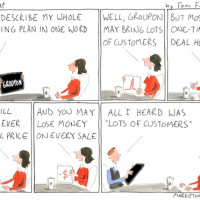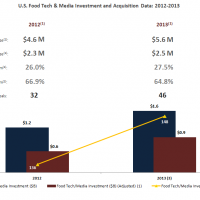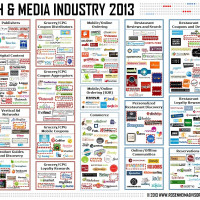TangoTab is a deal maker with a conscious. Unlike other services like Groupon and Living Social, it has a socially responsible angle – it donates a meal for every coupon you use – and offers restaurants access to a real-time marketing platform where they can control the timing and quantity of their promotions.
The company partners with local service organizations, like City Harvest in NYC, who distribute the free meals that TangoTab promotions pay for (which we’re told totals 96,000 so far). The company currently operates in Los Angeles, Oklahoma City, Dallas, Fort Worth, Chicago and New York City. We recently caught up with its VP of Strategy and Corporate Development, Mike Yonker, about the company, its business model and lessons learned.
 Food+Tech Connect: What problem are you solving?
Food+Tech Connect: What problem are you solving?
Mike Yonker: Normally, it’s pretty easy for restaurants to identify that they don’t have many people in for lunch on a Wednesday, say. What we’re trying to do is fill those tables in a way that’s very economical for [businesses] and measurable. Through our real-time marketing platform, restaurants control what promotions they offer, including their timing and quantity.
With something like Groupon, everyone could come in on the first day of the promotion with the coupon, and [a restaurant] is going to have to have all the resources to actually deal with that.
With TangoTab, on the consumer side, you can get discounts and be charitable in the process.
FTC: What is your business model?
MY: Restaurants only pay us when [TangoTab users] come through the door. It’s a pay for performance model. The restaurants pay us a small success fee when the diner comes in and the diner pays the restaurant directly for whatever they order. The amount of the fee depends on the restaurant. Depending whether it’s quick service or fine dining, the fee might be $2 to $4.
People will clip coupons, do daily deals through Groupon or living social, but we feel like we’re tackling a problem in a truly unique way. In our case, I don’t know that anybody has the same social activism.
FTC: What have been some of the challenges? What have you learned?
MY: There are always challenges.
We initially thought that New York, Dallas, Chicago would be our biggest markets, and they have been great, but our best markets are turning out to be these medium and smaller markets, like Oklahoma, where we launched in June. You learn something every day.
FTC: Why do you think that is?
MY: I think it’s sort of the small town mentality. While the cause resonates real well with all consumers, it seems like it does particularly so in small to medium town America. Also, in larger cities, restaurants and consumers are exposed to startups that come and go all the time, the smaller cities haven’t seen as much of them.
FTC: How do you encourage user engagement?
MY: Through Facebook, we give people feedback on their social activation score. So, for me, I see that I’ve fed 161 people. I can also see how many people my network has helped feed. There’s an ability to share that, to share your deals. What we’ll do, as we do more of the loyalty scheme, is to help people understand their impact more and more.
If you can feed a child, your network can feed a village, if you can change one of your habits everyday.
Interview has been condensed and edited.





